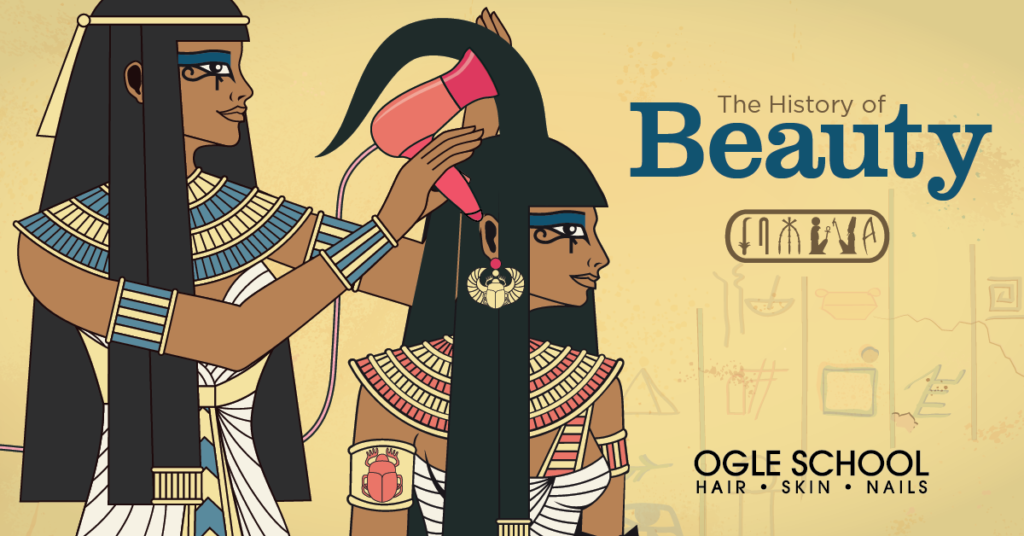For almost as long as people have walked the Earth, we’ve been trying to look our best doing it. We created gods and tried our best to look just like them: primping and applying various pastes and powders with varying levels of success. Here’s a look at how the industry has evolved across cultures and centuries.

Simply copy and paste the code below and you can share this infographic on your site:
Back in the 17th century, those aesthetic-loving Greeks originated the word for cosmetics, which they called “kosmetikos.” One of the first cultures to favor lighter complexions — which separated them from the more tanned lower-class laborers — the Greeks began using powdered lead, a trend that was also adopted by Renaissance royalty in France and England. Despite achieving the desired results, there were some unfortunate side effects from their toxic ingredient choice: namely, death. From lead, they moved on to having leeches suck some of the blood out of their face (seriously) and eventually to a much more tolerable mixture of chalk and various minerals to achieve the desired effects.
Out of necessity, many ancient makeups used naturally-sourced ingredients like honey, sea salt and clay, which were believed to harness the regenerative power of nature within them. It’s a trend that’s seen a huge resurgence in the beauty market today, with the sale of products in this category growing from $9 billion in 2010 to more than $14 billion in 2015.
Thankfully, we’ve come a long way from many of those archaic beauty methods, and like so many aesthetically-driven cultural movements, we have Hollywood to thank for it. As America and the world saw beautiful actresses on larger-than-life screens, everyone wanted to know how to achieve their signature looks. The man leading this charge was none other than the legendary Max Factor, who emigrated from Russia to Los Angeles and immediately recognized there was a market for beauty products outside the industry. In 1935, he opened the first makeup studio to service the industry and wealthy locals before branching off into commercial products like the first cake makeup, smear-proof lipstick and eyebrow pencil.
But as the golden age of color cinema was dictating American beauty trends, Europe descended into war. Rationing meant factories and ingredients were repurposed from countless industries, including cosmetology. Combine this with a post-war sense of modesty, and progressive makeup trends fell to the wayside. The result? A huge shift towards salon culture and ever-increasingly complex hairstyles. Still, it was only a matter of time before people needed the confidence and good feeling that comes with a beauty regimen.
In 1963, Mary Kay Ash founded the Mary Kay company, giving the beauty industry its first look at a home-to-home sales model and the enormous untapped markets in America’s smaller towns and cities. It’s a company that now boasts more than 5,000 employees and nearly $4 billion in annual sales.
Today, the new frontier of the beauty industry is social media, where cosmetology trends, products and influencers capture imaginations and audiences the world over. Whether it’s companies like Estee Lauder signing Kylie Jenner and her 44 million followers, major brands looking for user- or fan-generated content to get authentic takes on their products, or even the emerging market for digital-friendly makeup options, one can rest assured that advances in makeup will continue with each and every passing day.



